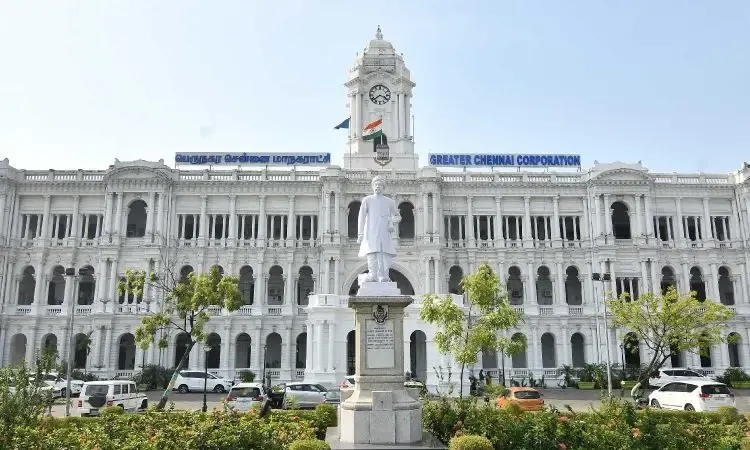How is the Chennai Corporation Addressing Footpath Encroachments for Safer Pedestrian Movement?

Synopsis
Key Takeaways
- GCC's SOP aims to enhance pedestrian safety.
- Encroachments must be cleared within 24 hours.
- Eviction notices will be issued at least one day in advance.
- Continuous follow-up inspections are required.
- Concerns about the impact on local vendors persist.
Chennai, Oct 7 (NationPress) The Greater Chennai Corporation (GCC) has launched a new Standard Operating Procedure (SOP) aimed at eliminating footpath encroachments and enhancing pedestrian safety throughout the city. The directive, issued by the chief engineer (General), encompasses all 15 zones and aims to standardize the eviction process while enhancing accountability among field officials.
According to the SOP, assistant engineers in each division are required to identify and document various forms of encroachments on footpaths—ranging from permanent structures and shop extensions to temporary vendor setups—and present these details to their respective assistant executive engineers (AEEs).
AEEs are tasked with ensuring that these identified encroachments are removed within 24 hours, effectively reducing delays and alleviating congestion on busy roads.
The new guidelines mandate assistant engineers to prepare comprehensive eviction lists, excluding designated vending areas, and share these with AEEs for organized zone-wise planning.
Eviction notices must be issued at least one day prior to the removal of encroachments affecting public pathways. In situations where police assistance is necessary to manage crowds or potential opposition, AEEs are instructed to collaborate with local police to facilitate operations smoothly and securely. After the removal of encroachments, officials must upload before-and-after photographs on the GCC app as evidence of actions taken.
Debris and waste must be swiftly cleared and transported to either the Kodungaiyur or Perungudi dump yards to prevent secondary obstructions.
The SOP stresses the importance of ongoing follow-up inspections to curb re-encroachment.
Officials have been cautioned that any negligence in executing these directives will be taken seriously. While this initiative aims to restore footpaths for pedestrians and promote road discipline, there are concerns regarding its impact on informal vendors.
Representatives from the town vending committee have expressed disappointment regarding the implementation of the SOP without prior consultation or discussion of relocation options for vendors who may lose their spots.
The committee has also highlighted delays in scheduling meetings with city officials, leaving small traders uncertain about their future business locations.
The GCC is anticipated to intensify eviction efforts in the coming weeks under these new guidelines. The challenge lies in balancing pedestrian safety and urban order with the economic needs of thousands of street vendors.









